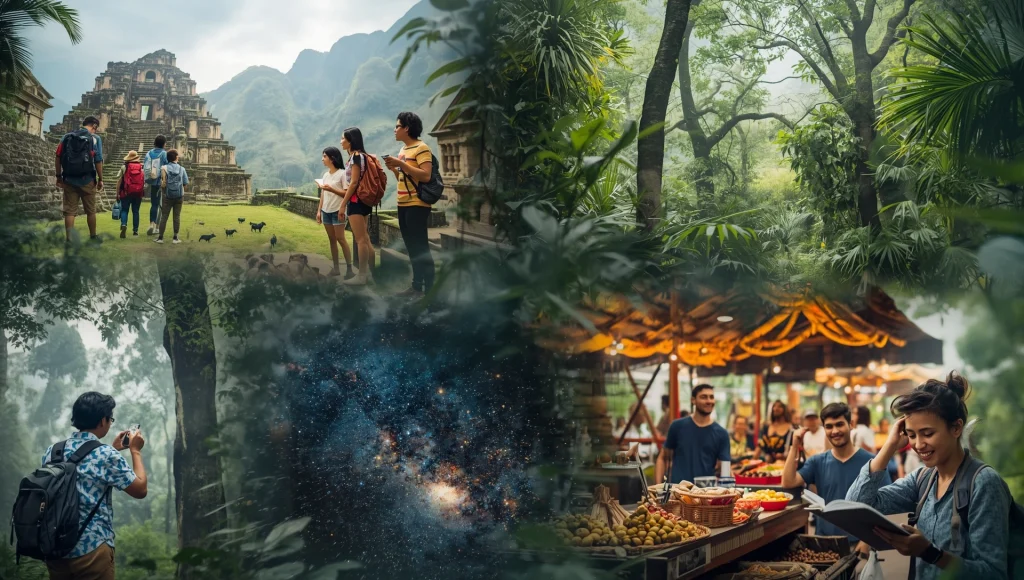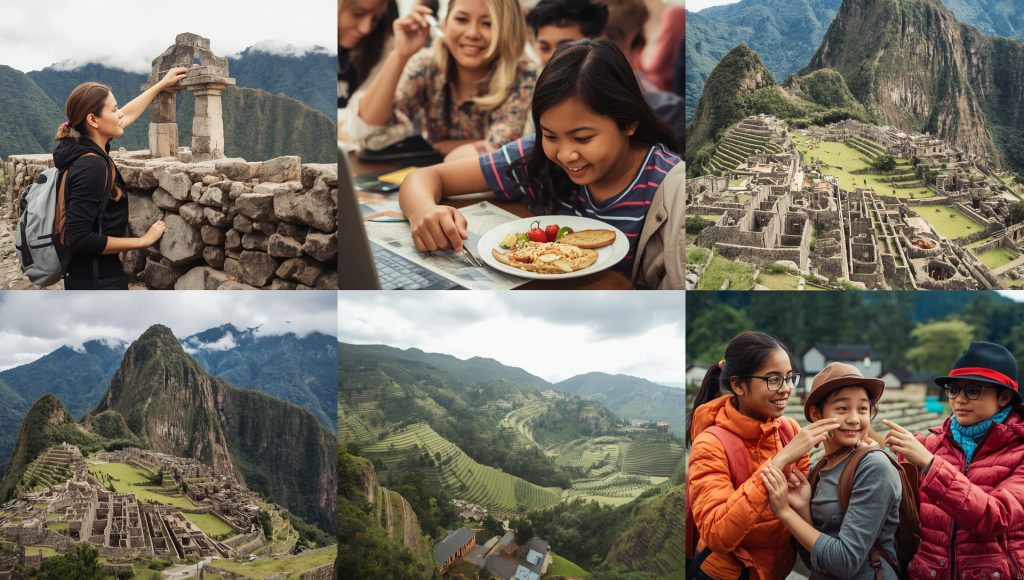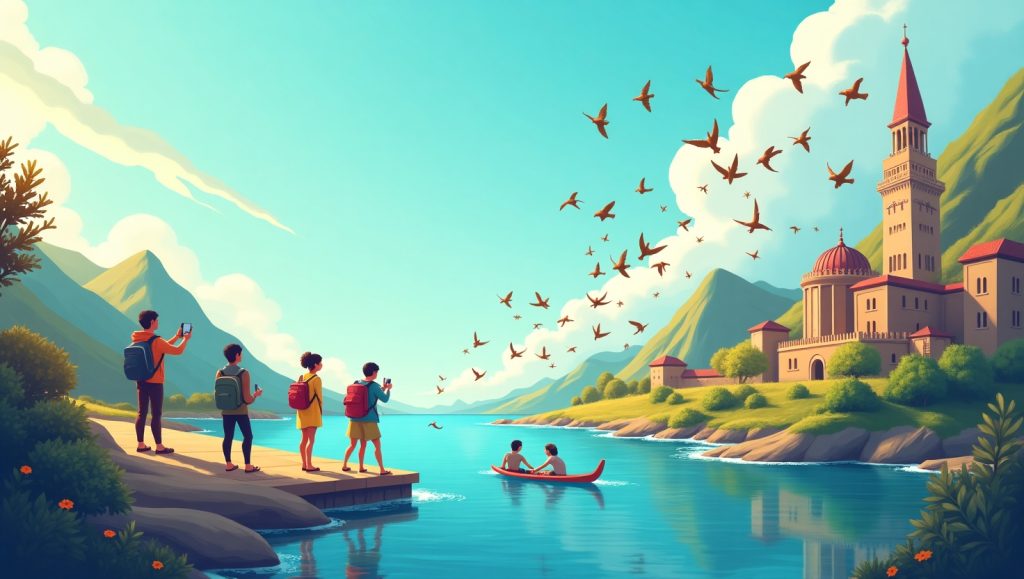Travel has always been one of the most enriching ways to learn about the world. While traditional vacations offer relaxation and entertainment, educational travel adventures provide something deeper—an opportunity to combine exploration with personal growth. These experiences go beyond sightseeing and allow travelers to immerse themselves in history, culture, science, and the environment.

Whether you are a student, a parent planning a family trip, or an adult looking for meaningful experiences, educational travel can transform the way you see the world.
Content
Why Choose Educational Travel Adventures?
The main purpose of educational travel adventures is to learn while exploring new places. Instead of simply being a tourist, you become an active participant in discovering the traditions, knowledge, and stories that shape each destination. These adventures can inspire creativity, build problem-solving skills, and foster a sense of curiosity. Students benefit greatly from hands-on experiences, such as visiting historical landmarks, participating in language immersion programs, or engaging in scientific field studies. For families, travel becomes a bonding activity that brings learning outside the classroom. Adults, too, can find inspiration by joining cultural tours, volunteer programs, or culinary experiences that highlight the heritage of a region.
Types of Educational Travel Adventures
Educational travel comes in many forms, each designed to connect travelers with knowledge in a unique way. Here are some of the most popular types:
1. Historical Journeys
Visiting ancient cities, battlefields, or museums brings history to life in ways that textbooks cannot. Walking through archaeological ruins or standing where significant events occurred gives travelers a deeper appreciation for human achievements and struggles.
2. Cultural Immersion Trips
Living with local communities, learning traditional crafts, or participating in festivals offers an authentic understanding of different lifestyles. Cultural immersion is one of the most powerful ways to develop empathy and global awareness.
3. Nature and Wildlife Exploration
Eco-travel adventures include safaris, rainforest treks, or marine conservation activities. These experiences teach travelers about biodiversity, conservation efforts, and the importance of protecting natural habitats.
4. Language Learning Tours
Spending time in a foreign country is one of the fastest ways to master a new language. By practicing daily conversations with locals, travelers gain confidence and fluency while also learning about cultural expressions.
5. Science and Technology Trips
Educational tours of observatories, research centers, or technology hubs help travelers explore innovations shaping the modern world. Such trips are especially inspiring for students interested in STEM fields.
Benefits of Educational Travel:
The value of educational travel adventures goes far beyond academic knowledge. They shape character, worldview, and personal growth. Some key benefits include:

- Hands-on Learning: Travelers experience lessons in real-life settings, making knowledge easier to understand and remember.
- Cultural Appreciation: Meeting people from different backgrounds fosters respect, tolerance, and open-mindedness.
- Confidence and Independence: Navigating new places develops problem-solving skills and self-reliance.
- Global Awareness: Exposure to environmental and social issues inspires responsibility and action.
- Memorable Experiences: Unlike traditional classroom learning, these adventures create lasting memories.
Planning an Educational Travel Adventure
To make the most of your journey, careful planning is essential. Here are some practical tips:
Define Learning Goals
Start by identifying what you want to learn or achieve. Is the trip focused on history, language, or environmental awareness? Having clear objectives helps shape your itinerary.
Choose the Right Destination
Select locations that align with your goals. A student interested in history might explore ancient civilizations, while a science enthusiast might prefer destinations known for innovation or biodiversity.
Balance Education and Leisure
While learning is the core purpose, allow time for relaxation and enjoyment. A balanced trip ensures travelers remain engaged and energized.
Engage with Locals
Interacting with local communities adds authenticity to the experience. Whether through guided tours, workshops, or homestays, these connections provide valuable insights.
Document the Experience
Encourage journaling, photography, or video diaries. Recording thoughts and reflections ensures the lessons learned stay with you long after the trip ends.
Popular Destinations for Educational Travel
The world is full of destinations ideal for educational adventures. Some examples include:
- Historic Cities: Places with ancient ruins, medieval towns, or colonial heritage provide a direct link to the past.
- Natural Wonders: National parks, mountains, and marine reserves offer opportunities to study ecology and geology.
- Cultural Capitals: Cities known for art, music, and literature inspire creativity and appreciation for human expression.
- Scientific Hubs: Destinations with observatories, space centers, or innovation districts fuel curiosity about the future.
How Educational Travel Shapes the Future
Educational travel adventures are not just about learning facts; they are about shaping perspectives. They encourage individuals to think critically, respect diversity, and understand the interconnectedness of the world. For students, these experiences can guide career choices and inspire lifelong learning. For families, they create bonds through shared exploration. For adults, they offer a way to rediscover curiosity and passion.

In a world that is constantly evolving, educational travel ensures that learning never stops. By stepping outside the classroom and into real-world experiences, every traveler has the chance to expand their horizons.
Final Thoughts
Educational travel adventures prove that learning can be exciting, meaningful, and transformative. They combine discovery with understanding, allowing travelers to explore not only the world but also themselves. Whether through history, culture, science, or nature, these journeys create a lifelong love for learning and a deeper connection to the planet we share. For futher Information visit our website Best tips for traveling
FAQ’s:
What is an example of an educational tour?
A visit to a historical museum, science center, or cultural heritage site.
What is the meaning of educational travel?
Travel that combines exploration with learning about history, culture, nature, or science.
Why is travel the best education?
Because it offers real-life experiences, cultural exposure, and practical learning beyond classrooms.
What is the meaning of travel adventures?
Exciting journeys that involve exploration, discovery, and memorable experiences.